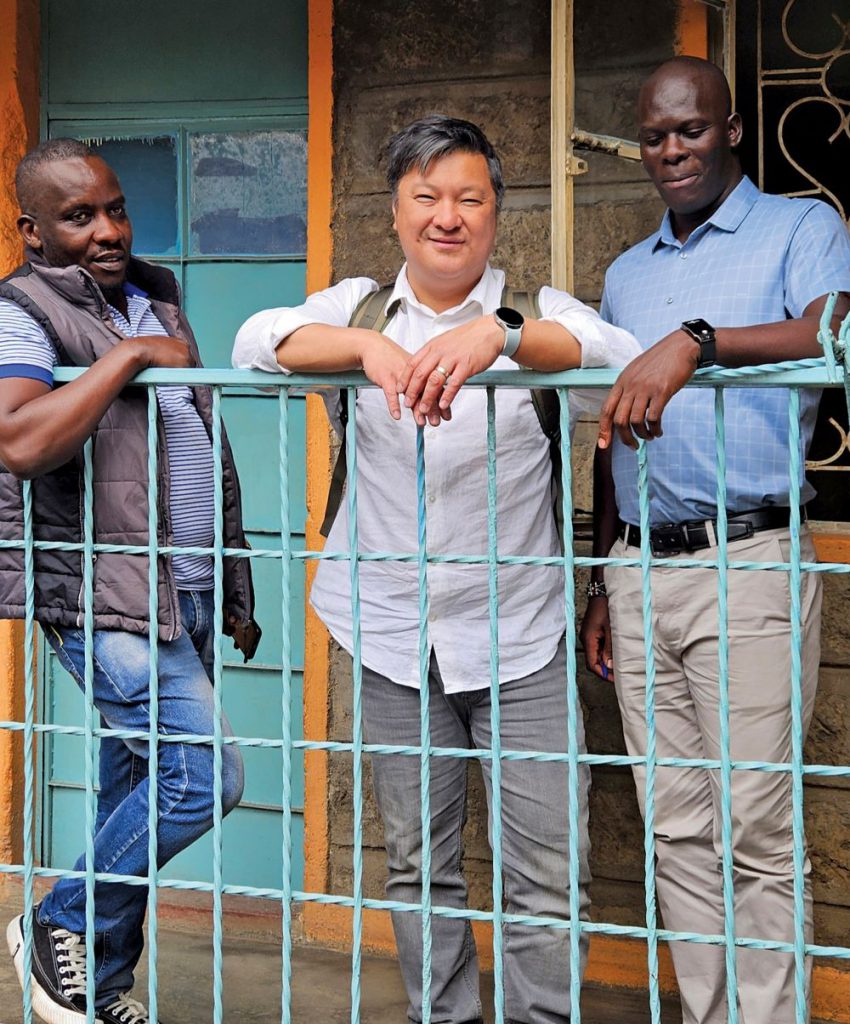Souradet Shaw [BA/97, M.Sc./09, PhD/18] is an expert at analyzing public health data to shed light on the spread of infectious diseases.

The assistant professor of community health sciences has traced the transmission of infections such as COVID-19 and mpox in specific populations.
But his greatest interest is in sexually transmitted and blood-borne infections (STBBIs), such as HIV and gonorrhea. As a social epidemiologist, Shaw aims to understand how social structures influence people’s health in ways that are not equitable.
“STBBIs are infections of inequity,” he says. “They are far more prevalent in groups that are marginalized by factors such as poverty and racism. Examining these inequities and partnering with those most affected can illuminate the public health policies that we need to ensure no one is left behind.”
In a study published in the Journal of Acquired Immune Deficiency Syndromes, Shaw found that female sex workers in Kenya had widely varying rates of HIV infection, depending on which area of Nairobi they worked in.
“With this kind of knowledge, we can target the specific places with higher prevalence to make the most impact,” says Shaw, who joined the UM faculty in 2021 and holds a Canada Research Chair in program science and global public health.
“Program science” is an approach that embeds research into public health programs so findings can quickly be translated into better care. “This is why we do research, so it doesn’t just sit on a dusty shelf,” he says.
Shaw was five years old when he and his family fled Laos for Canada as refugees. He grew up in Winnipeg and is a three-time UM alum.
As a member of UM’s Institute for Global Public Health, he has collaborated on research in countries such as Colombia, India, Pakistan and Nigeria.
In Manitoba, he has formed relationships and conducted research with non-profits such as Nine Circles Community Health Centre, Sunshine House and Ka Ni Kanichihk.
In a study in the International Journal of STD & AIDS, he compared data from two Winnipeg gonorrhea outbreaks, in 2012 and 2016.
The first outbreak was in areas where gonorrhea was historically recorded. The second took place in those hotspots, but also spread to different areas of the city.
“It was a sign of things to come. We’re now seeing exploding HIV and syphilis rates.”
Shaw is now working with Indigenous partners on a study that focuses on decolonizing gonorrhea epidemiology. Indigenous people in Manitoba have gonorrhea rates eight to 10 times higher than the general population, he says.
“This study has Indigenous community members asking the questions and interpreting the results,” says the professor, who worked for 10 years as an epidemiologist with the Winnipeg Regional Health Authority.
Shaw says one of the best aspects of his job is drawing on multiple fields for his research.
“My work involves understanding history, politics, policy and sociology, which shape the health of individuals.
“As a refugee from war-torn Southeast Asia, I’ve witnessed how forces out of our control can determine our well-being. Through my research, I hope to extend the lifeline that was given to my family and find ways to achieve a more just society through public health policy and programs.”
BY MATTHEW KRUCHAK
